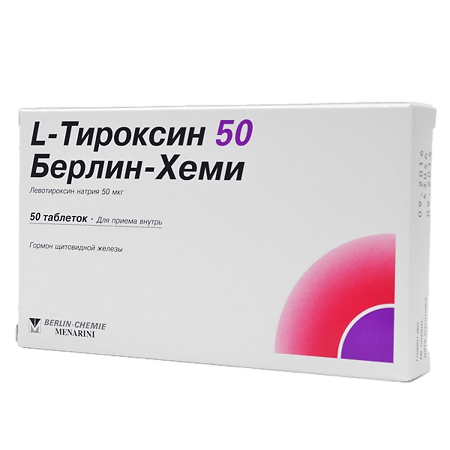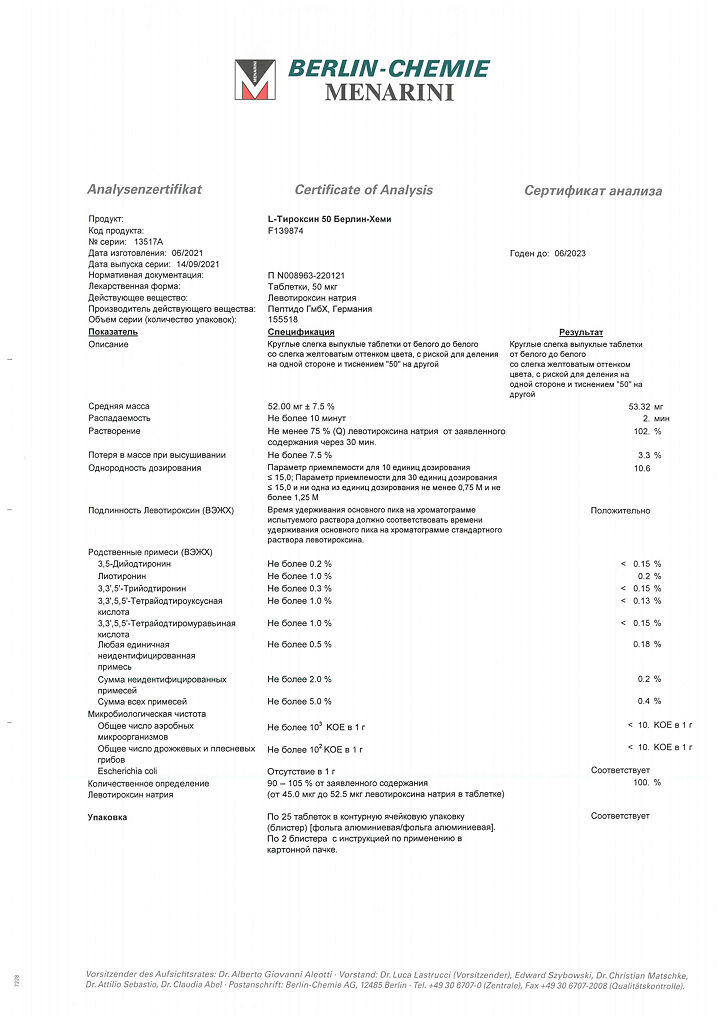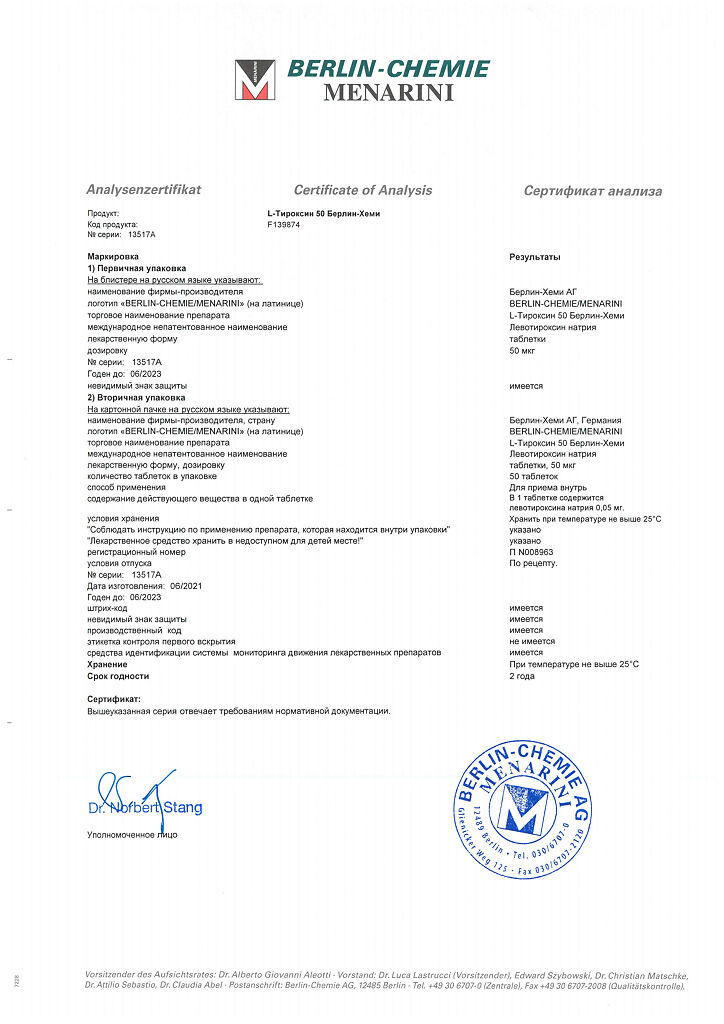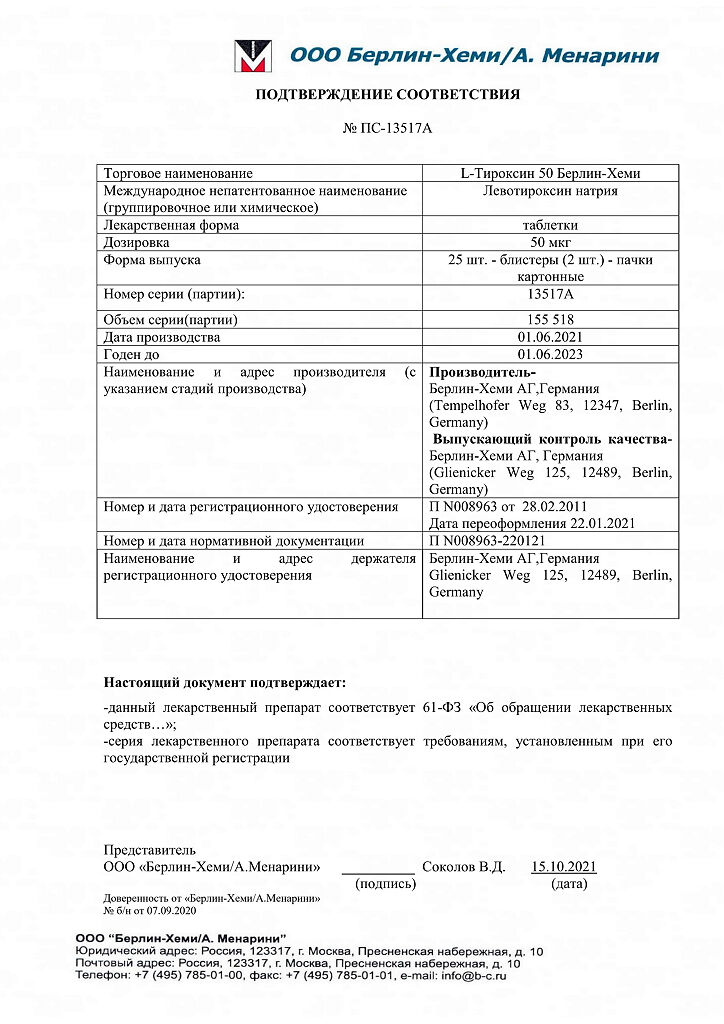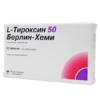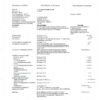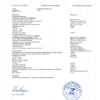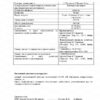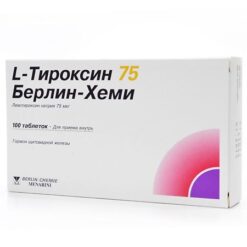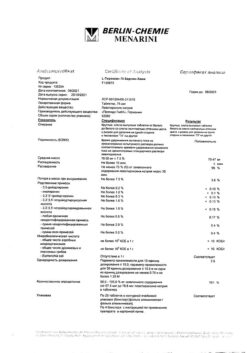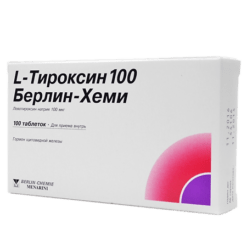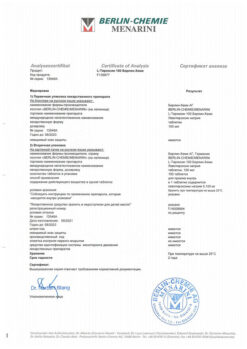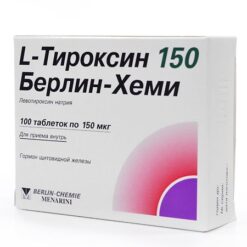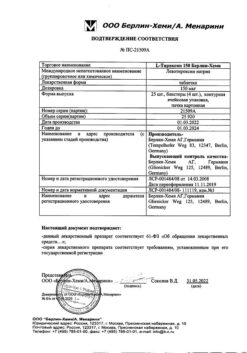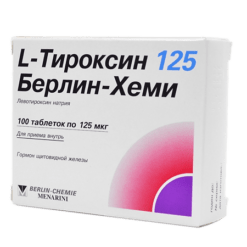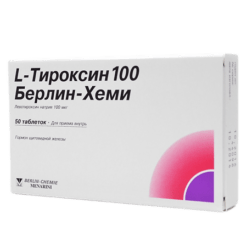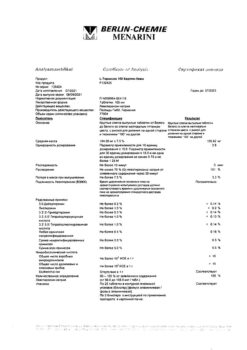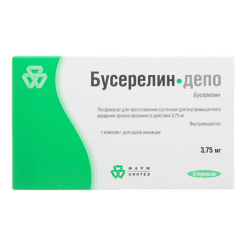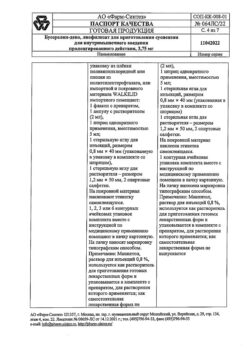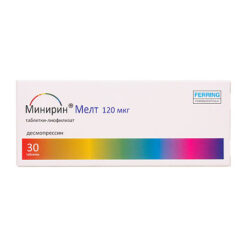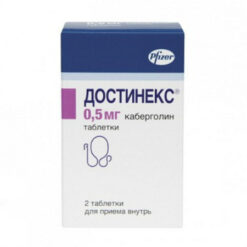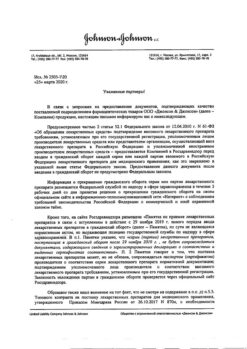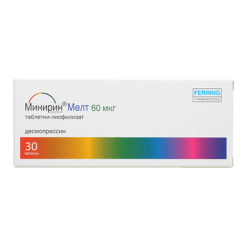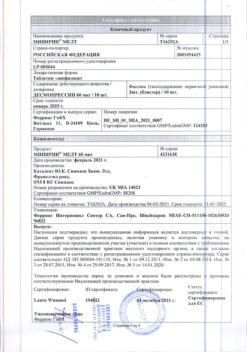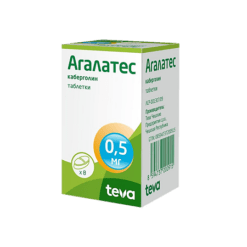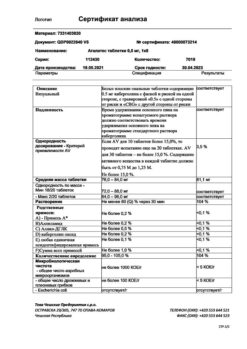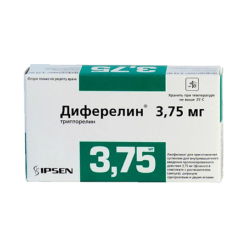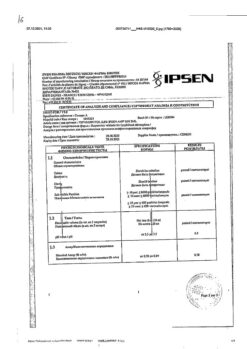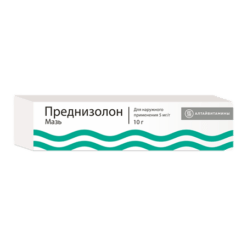No products in the cart.
L-Tyroxine 50 Berlin Chemi, tablets 50 mcg 50 pcs
€3.72 €3.38
Description
After partial conversion to liothyronine (in the liver and kidneys) and transfer to body cells, it influences tissue development and growth and metabolism. In small doses it has an anabolic effect on protein and fat metabolism. In medium doses it stimulates growth and development, increases tissue oxygen demand, stimulates metabolism of proteins, fats and carbohydrates, increases functional activity of the cardiovascular system and CNS. At high doses it inhibits the production of thyrotropin-releasing hormone of the hypothalamus and thyrotropic hormone of the pituitary gland.
Pharmacodynamics
Therapeutic effect is observed in 7-12 days, during the same time the effect after discontinuation of the drug is maintained. Clinical effect in hypothyroidism is seen in 3-5 days. Diffuse goiter decreases or disappears within 3-6 months.
Pharmacokinetics
When taken orally levothyroxine is absorbed almost exclusively in the upper small intestine. Up to 80% of the dose taken is absorbed. Food intake reduces the absorption of levothyroxine. Cmax in blood serum is reached 6 hours after intake. After absorption, more than 99% of the drug is bound to serum proteins. In various tissues levothyroxine is monodeiodized with the formation of triiodothyronine and inactive products. Thyroid hormones are metabolized mainly in the liver, kidneys, brain, and muscles. A small amount of the drug undergoes deamination and decarboxylation, as well as conjugation with sulfuric and glucuronic acids (in the liver). Metabolites are excreted in the urine and bile. T1/2 is 6-8 days.
Indications
Indications
Hypothyroidism of any origin: primary and secondary hypothyroidism, incl. after operations for goiter, as a result of therapy with radioactive iodine or thyreostatics, as a consequence of various thyroiditis.
Prevention of recurrence of nodular goiter after surgical treatment (with normal thyroid function).
Diffuse euthyroid goiter.
Diffuse toxic goiter: after compensation of thyrotoxicosis with thyreostatics (as part of combination therapy).
Thyroid cancer after surgical treatment (to suppress tumor recurrence and as replacement therapy).
As a diagnostic tool when performing a thyroid suppression test.
Pharmacological effect
Pharmacological effect
After partial conversion into liothyronine (in the liver and kidneys) and passage into the cells of the body, it affects the development and growth of tissues and metabolism. In small doses it has an anabolic effect on protein and fat metabolism. In medium doses, it stimulates growth and development, increases tissue oxygen demand, stimulates the metabolism of proteins, fats and carbohydrates, and increases the functional activity of the cardiovascular system and central nervous system. In large doses, it inhibits the production of thyrotropin-releasing hormone of the hypothalamus and thyroid-stimulating hormone of the pituitary gland.
Pharmacodynamics
The therapeutic effect is observed after 7–12 days, during the same time the effect persists after discontinuation of the drug. The clinical effect for hypothyroidism appears after 3–5 days. Diffuse goiter decreases or disappears within 3–6 months.
Pharmacokinetics
When taken orally, levothyroxine is absorbed almost exclusively in the upper small intestine. Up to 80% of the dose taken is absorbed. Eating reduces the absorption of levothyroxine. Cmax in blood serum is achieved 6 hours after administration. After absorption, more than 99% of the drug is bound to serum proteins. In various tissues, monodeiodination of levothyroxine occurs to form triiodothyronine and inactive products. Thyroid hormones are metabolized mainly in the liver, kidneys, brain and muscles. A small amount of the drug undergoes deamination and decarboxylation, as well as conjugation with sulfuric and glucuronic acids (in the liver). Metabolites are excreted in urine and bile. T1/2 – 6–8 days.
Special instructions
Special instructions
If it is necessary to prescribe other drugs containing iodine, consult a doctor. It is recommended to periodically determine the TSH content in the blood, an elevated level of which indicates an insufficient dose. The adequacy of thyroid suppressive therapy is also assessed by suppression of radioactive iodine uptake. In case of long-standing multinodular goiter, a stimulation test with thyrotropin-releasing hormone should be performed before starting treatment. In most cases of hypothyroidism, metabolic status should be restored gradually, especially in elderly patients and patients with pathology of the cardiovascular system. For elderly patients, the initial dose should not exceed 50 mcg. When used in the second and third trimesters of pregnancy, the dose is usually increased by 25%.
Prescribe with caution for severe, long-term hypofunction of the thyroid gland. Before starting treatment, the possibility of pituitary or hypothalamic hypothyroidism should be excluded.
Active ingredient
Active ingredient
Levothyroxine sodium
Composition
Composition
1 tablet levothyroxine sodium 50 mcg
Excipients:
calcium hydrogen phosphate dihydrate,
microcrystalline cellulose,
sodium carboxymethyl starch (type A),
dextrin,
long chain partial glycerides.
Pregnancy
Pregnancy
During pregnancy and lactation (breastfeeding), the drug should be continued. During pregnancy, the need for thyroid hormones increases, so it is necessary to adjust the dose of the drug.
However, levothyroxine is not recommended for use during pregnancy simultaneously with thyreostatic drugs, which penetrate the placenta and can cause hypothyroidism in the fetus.
In children, the initial daily dose is 12.5-50 mcg. For a long course of treatment, the dose of the drug is determined from an approximate calculation of 100-150 mcg/m2 of body surface area.
For infants and children under 3 years of age, the daily dose of L-Thyroxine Berlin-Chemie is given in one dose 30 minutes before the first feeding. The tablet is dissolved in water to a thin suspension, which is prepared immediately before taking the drug.
Contraindications
Contraindications
Hyperfunction of the thyroid gland of any origin.
Untreated adrenal insufficiency.
Acute myocardial infarction.
High blood pressure.
Increased individual sensitivity to the drug.
Side Effects
Side Effects
Allergic reactions (skin rash, itchy skin).
When used in excessively high doses:
– hyperthyroidism (changes in appetite, dysmenorrhea, chest pain, diarrhea, tachycardia, arrhythmia, fever, tremor, headache, irritability, muscle cramps of the lower extremities, nervousness, sweating, difficulty falling asleep, vomiting, weight loss).
When used in insufficiently effective doses:
– hypothyroidism (dysmenorrhea, constipation, dryness, puffiness of the skin, headache, lethargy, myalgia, drowsiness, weakness, apathy, weight gain).
Interaction
Interaction
Levothyroxine enhances the effect of indirect anticoagulants, which may require a reduction in their dose.
The use of tricyclic antidepressants with levothyroxine may result in increased antidepressant effects.
Thyroid hormones may increase the need for insulin and oral hypoglycemic agents. More frequent monitoring of blood glucose levels is recommended during periods of initiation of treatment with levothyroxine, as well as when changing the dose of the drug.
Levothyroxine reduces the effect of cardiac glycosides. With simultaneous use of cholestyramine, colestipol and aluminum hydroxide, they reduce the plasma concentration of levothyroxine by inhibiting its absorption in the intestine.
When used simultaneously with anabolic steroids, asparaginase, tamoxifen, pharmacokinetic interaction is possible at the level of protein binding.
When used simultaneously with phenytoin, salicylates, clofibrate, furosemide in high doses, the content of levothyroxine and T4 not bound to blood plasma proteins increases.
Somatotropin, when used simultaneously with levothyroxine, can accelerate the closure of epiphyseal growth plates.
Taking phenobarbital, carbamazepine and rifampicin may increase the clearance of levothyroxine and require an increase in dose.
Estrogens increase the concentration of the thyroglobulin-bound fraction, which may lead to a decrease in the effectiveness of the drug.
Amiodarone, aminoglutethimide, PAS, ethionamide, antithyroid drugs, beta-blockers, carbamazepine, chloral hydrate, diazepam, levodopa, dopamine, metoclopramide, lovastatin, somatostatin affect the synthesis, secretion, distribution and metabolism of the drug.
Overdose
Overdose
Symptoms: thyrotoxic crisis, sometimes delayed for several days after administration.
Treatment: prescription of beta-blockers, intravenous administration of corticosteroids, plasmapheresis.
Storage conditions
Storage conditions
Store at a temperature not exceeding 25°C.
Keep out of the reach of children.
Shelf life
Shelf life
2 years.
Manufacturer
Manufacturer
Berlin-Chemie AG, Germany
Additional information
| Shelf life | 2 years. |
|---|---|
| Conditions of storage | Store at a temperature not exceeding 25°C. Keep out of reach of children. |
| Manufacturer | Berlin-Chemie AG, Germany |
| Medication form | pills |
| Brand | Berlin-Chemie AG |
Other forms…
Related products
Buy L-Tyroxine 50 Berlin Chemi, tablets 50 mcg 50 pcs with delivery to USA, UK, Europe and over 120 other countries.

